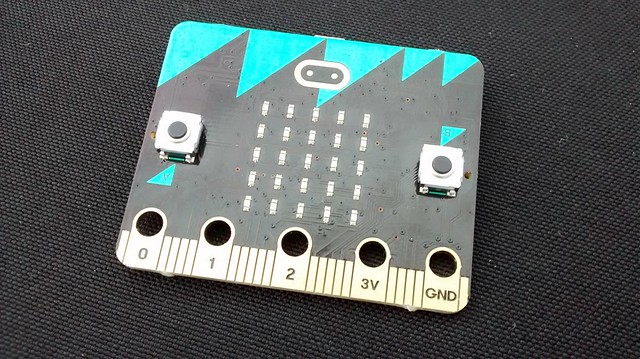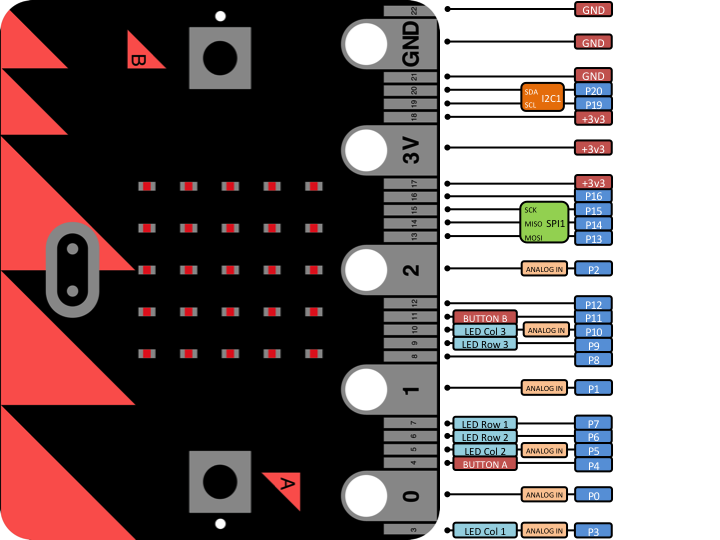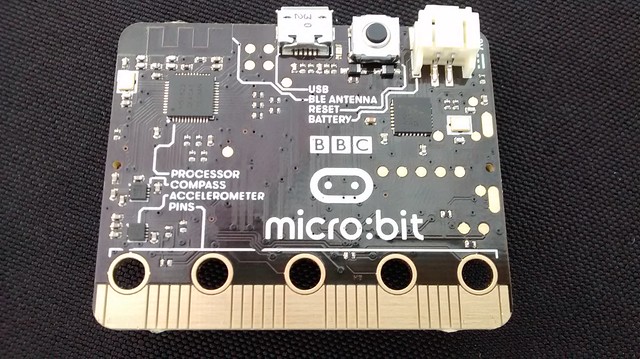Micro:bit
Last weekend, August 15 and 16, the BBC were in Blackpool as part of their Make it Digital roadshow.

I was lucky enough to be asked along to help deliver a day long workshop, all about a new micro controller platform....
Micro:bit

Micro:bit is small micro controller powered board that is similar to an Arduino in functionality. The BBC are looking to create a BBC Micro for this generation. It is certainly no Raspberry Pi but it is an impressive board for learning to hack and in late October 2015 all children entering year 7 (11 year old children) will receive one of these for free.
What's under the hood?

Information from https://developer.mbed.org/platforms/Microbit/
Nordic nRF51822 Multi-protocol Bluetooth® 4.0 low energy/2.4GHz RF SoC
32-bit ARM Cortex M0 processor (16MHz)
16kB RAM
256kB Flash
Bluetooth Low Energy Master/Slave capable
Input/Output
25 LED Matrix
Freescale MMA8652 3-axis Accelerometer
Freescale MAG3110 3-axis Magnetometer (e-compass)
Push Button x2
USB and Edge connector Serial I/O
2/3 reconfigurable PWM outputs
5 x Banana/Croc-clip connectors
Edge connector
6 x Analog In
6-17 GPIO (configuration dependent)
SPI
i2c
USB Micro B connector
JST power connector (3v)

Programming Micro:bit is accomplished in one fo two ways. Using Microsoft Blocks a block based language similar to Blockly or we can use Microsoft TouchDevelop IDE, an interesting development tool that merges a typed language with blocks. It's a little tricky to explain but at first it feels rather clunky, then after a few minutes you get used to the auto complete prompts and start writing code a little quicker. Interestingly, code written in Microsoft Blocks can be converted into a Touch Develop project with just one click.
If you would like to know a bit more about Micro:bit and see how it can be used, then this handy link will take you to a preview of the Quick start for teachers guide